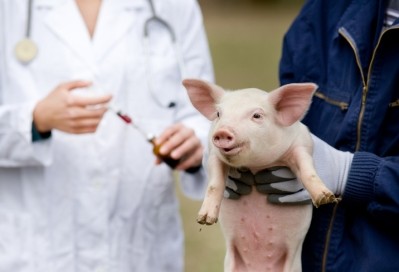ASF vaccine candidate developed by UConn in collaboration with USDA licensed by Zoetis

Scientists at the USDA and UConn developed vaccine candidates deemed ‘promising’ by independent researchers, with one of those - ASFV-G-ΔMGF – now set to advance to the commercial stage.
UConn’s Technology Commercialization Services (TCS), which works with faculty and researchers to expedite and facilitate the transformation of UConn discoveries into products and services that benefit society, facilitated an agreement with the USDA that allowed the agency to negotiate licenses with animal health companies like Zoetis to eventually bring the vaccine to market.
'A new frontier'
The successful development of safe and effective modified live vaccines represents a new frontier in protecting swine from ASF, said the experts involved.
Dr Guillermo Risatti, professor of pathobiology in UConn’s College of Agriculture, Health and Natural Resources and director of the Connecticut Veterinary Medical Diagnostic Laboratory (CVMDL), a body that works cooperatively with federal and state veterinary agencies to enhance disease surveillance and response in the region, developed ASFV-G-ΔMGF in collaboration with USDA scientists, Dr Manuel Borca, and Douglas Gladue
“Over the years, people have tried live attenuated vaccines, they have tried killed vaccines, they have tried different cocktails of proteins that are expressed by the virus as a mechanism of protection,” Risatti said. “But it never materialized into some sort of candidate.”
Researchers from Zoetis and the Friedrich-Loeffler-Institut (FLI) in Germany conducted trials on wild boars using edible bait containing the vaccine, and on domestic pigs through a more traditional route—injection into the muscle. Both routes demonstrated the immunization’s efficacy against ASF, according to a UConn press release
“Our findings confirm that ‘ASF-G-ΔMGF’ is a most promising vaccine candidate that could find its way into well-organized and controlled immunization campaigns,” the researchers from Zoetis and FLI wrote in a peer-reviewed article in the journal Pathogens.
Currently, the nearest documented cases of ASF, respective to the US, have occurred in the Dominican Republic and Haiti. And more than 35 countries globally are now impacted by the disease.











